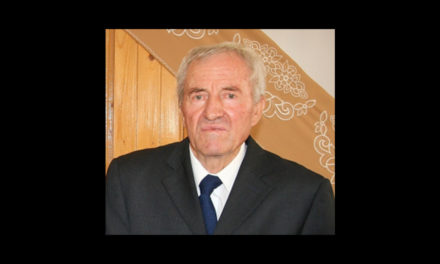The matter is urgent, because according to the new law taking away Ukrainian rights, ethnic schools in the country will practically cease from September, Minister of Foreign Affairs and Trade Péter Szijjártó said in Strasbourg on Wednesday.
According to a press release from the Ministry of Foreign Affairs and Trade, the head of the ministry underlined that the legislation in question, adopted at the end of last year, further worsens the situation of the Transcarpathian Hungarian national community, and therefore international institutions must act on the matter, even if the government decided at the outbreak of the war that so to speak, it temporarily puts the issue of deprivation of rights in parentheses.
"We want and will protect the rights of the Hungarian national communities all over the world, so of course the Transcarpathian Hungarians can also count on the help of Hungary, the Hungarian government, when it comes to asserting their rights"
he stated.
In connection with this, he reported that there are ninety-nine primary and secondary schools in Ukraine that currently operate as Hungarian ethnic educational institutions, and that, following the new law, they will become state schools instead of minority schools with some level of access to the Hungarian language from September 1st.
In addition, the regulation will also come into effect, based on which the proportion of classes held in Hungarian will be gradually reduced to 40 percent from the fourth grade upwards, and graduation exams, admissions and vocational training in the national language will also be abolished.
Péter Szijjártó welcomed the fact that the Parliamentary Assembly of the Strasbourg-based Council of Europe will address the issue to the Venice Commission on the Hungarian-Romanian initiative, and that the body of constitutional law experts will be ready with its position by June.
He emphasized that the Council of Europe was created specifically to maintain the peace of the continent, the importance of the institution is therefore outstanding, as it provides an opportunity for a wide-ranging dialogue.
"We sincerely hope that the international community, the European Union and other international organizations will force Ukraine to implement the position of the Venice Commission in the same way as they have done in several cases with Hungarian legislation"
- He told.
"So Hungary stands by Ukraine, we will continue the largest humanitarian action in the country's history as long as necessary, but at the same time we expect Ukraine to restore the rights of the Hungarian national community in terms of the use of the mother tongue," he emphasized.
"We are not asking for any rights for the Transcarpathian Hungarians that they did not have before, but we want to restore the situation before the deprivation of rights that started in 2015," he added.
"The Transcarpathian Hungarians can count on us"
- he stated, pointing out that standing up for the rights of those affected will continue to be one of the most important tasks of Hungarian diplomacy.
He also emphasized that in the past seven or eight years, Hungarian-Ukrainian relations were fundamentally determined by the process in which Kiev "step by step violated and took away the rights of the Hungarian national community."
As he said, the organization is also extremely important for our country because it has institutions that were created to enforce the rights of national minorities, and this is essential due to historical characteristics in order to guarantee the rights of Hungarian communities across the border.
During the day, Péter Szijjártó met with the President of the European Court of Human Rights, the Honorary President of the Venice Commission, and the Secretary General of the Council of Europe and the body's Parliamentary Assembly in the French city.
MTI
Photo: Facebook













